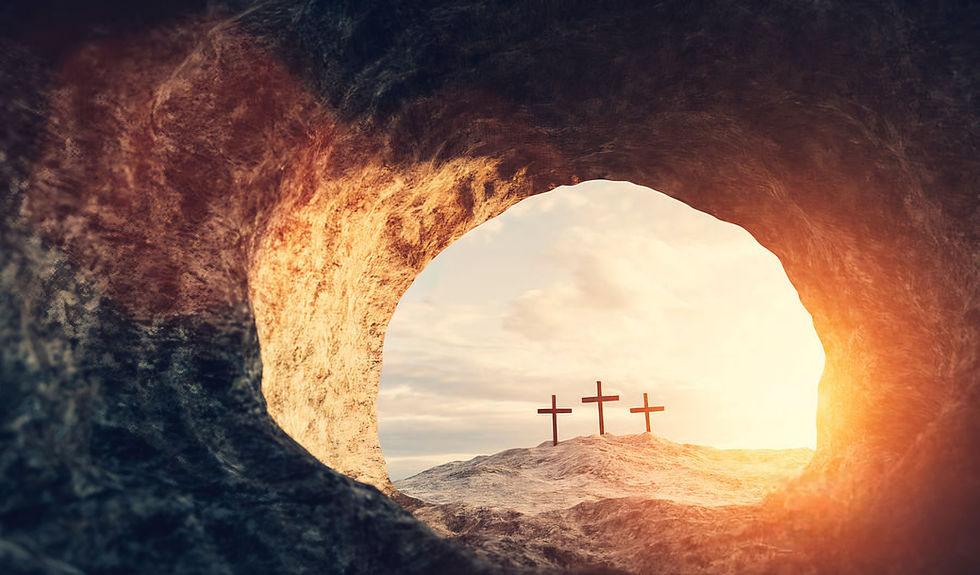Embracing the Miracle
- Crossfire

- Jan 22, 2023
- 4 min read

When Jesus heard what had happened [to John the Baptist], He withdrew to a solitary place. Hearing of this, the crowds followed Him on foot from towns. When Jesus landed and saw the crowds, He had compassion on them and healed their sick. As evening approached, the disciples came to Him and said, “This is a remote place and it is already getting late. Send the crowds away so they can go to the villages and buy themselves some food.” Jesus replied, “They do not need to go away. You give them something to eat.” Matthew 14:13-16
The feeding of the five thousand is the only miracle recorded in all four gospels. It took place early in Jesus’ ministry, soon after the execution of John the Baptist by Herod Antipas. Not only was Jesus preaching to the crowds who followed Him, but also healing the sick. His disciples had been witness to this as they traveled with Jesus. The concept of miracles was not foreign to them. This day seemed to be framed for their growth in the faith, allowing them to see, to understand, and to believe. Instead, they questioned Jesus’ ability to feed the multitude, insisting instead that the people be sent away to fend for themselves.
Perhaps Philip’s practicality reflects a very human approach to miracles. “Where would we find food enough to feed all these people?” he asked of Jesus. Being a native of the area, he knew that the time was past for finding food and lodging nearby. “Eight months’ wages,” he complained to Jesus, “would not be enough to buy bread for each person to have a bite.” And yet, Jesus said to His disciples “You feed them.”
What did Jesus mean when He told the disciples to feed the five thousand? Surely He realized that the coffers of their ministry could not withstand the cost of even a small amount of food for so many. But Jesus knew that the disciples needed to understand the power that was available to them by making themselves receptive to a miracle.
It was Andrew who suggests the lunch of the young boy as a possible answer or perhaps as a way to help Jesus understand the situation. Five loaves of bread the size of buns and two small fish – all that was available to feed five thousand. “How far will this go among so many?”
Jesus did not need the child’s lunch to feed the five thousand. Even Satan knew that Jesus could turn stones into bread. Was the miracle to be a sign for the thousands who followed Him up the hillside? Or was it an opportunity for the disciples to grow in their understanding of who Jesus was and what they could become?
We do not know how Andrew knew that the boy had food. He might have been combing the crowd, realizing the need and hoping for a solution. But perhaps the boy was standing nearby and, with the innocence of a child, offered his meager meal to Jesus. At the touch of the Master, the five thousand were fed with twelve baskets of bread left over.
There is no explanation given in scripture why Jesus did not just provide the exact amount of bread but chose to have remaining baskets. Much has been speculated about the number twelve as well as the abundant return. The baskets may have belonged to the disciples and the fragments from the feeding would have been provisions for the twelve. Or perhaps it was a visual lesson, each man holding a full basket of bread after every person had been fed, reminding them of the part they had played in the feeding of the multitude.
We, too, can be a conduit for the miraculous will of God. To do so, we must be receptive to the potential of a miracle – a God-provided opportunity which reaches beyond barriers to witness His love. But we must make ourselves available to God. So often, we question our abilities and our resources. It is so much easier to “send the people away” than to be a catalyst for change. And yet, with a heart that cares, with open hands and eyes focused on the needs of others, we, like the young boy, can embrace the miracle.
Our miracles need not involve unexplainable healing or extraordinary consequences, though this is not beyond the scope of possibility. Powered by faith, there is no limit to the outcomes of our prayers. Our God is alert to our needs and to our weaknesses. He sees beyond the barriers which limit our vision and provides.
But at times He may say to us “You feed the multitude. You wipe the tear or pick up the fallen. Take of what you have and give to those who have none. Teach the unknowing. Lift up the downtrodden. Be a miracle to someone who cannot be a miracle to themselves.” And, as we embrace the opportunity, we hear the Master say, ”Well done.”



Comments